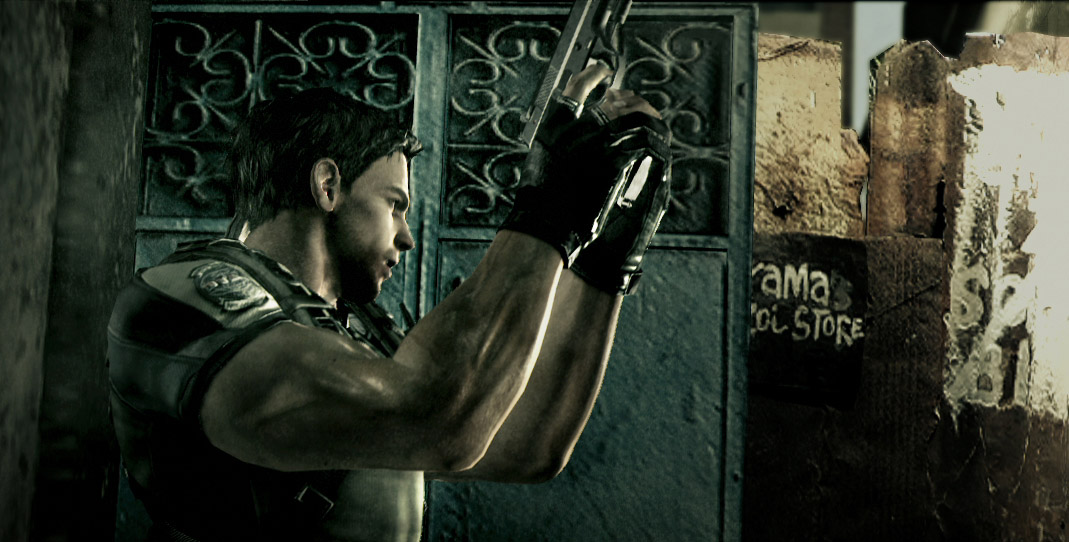
It amuses me to no small degree that Capcom would try to fend off the recent criticism of Resident Evil 5‘s control issues by stating that they were trying to stay true to the franchise.
“When it comes to Resident Evil, we feel that by imposing a restriction on the player you actually increase the tension that they feel while playing,” said producer Jun Takeuchi.
Disregarding the fact that Dead Space proved that you can make a modern survival horror game without sluggish controls, let us examine Capcom’s attempts at maintaining the legacy of previous iterations in the current generation of Resident Evil games. This the second game in the series to be completely void of zombies, a series mainstay up until Resident Evil 4. Much of Resident Evil 5 takes place in broad daylight, eliminating the shadow that previous games had made such wonderful use of. The older games were about surviving on your own against unfathomable and terrifying odds, whereas RE5 is basically based entirely around a cooperative effort with a friend or AI player. Even Chris Redfield, one of the oldest characters in the series now looks more like a roided out ex-wrestler than the humble Raccoon City police officer he once was.
It wouldn’t be a stretch to say that aesthetically, as well as thematically, Resident Evil 5 carries only the barest minimum of similarities with the games that came before. Even then it is a connection that could be undone as easily as simply changing a few names. When Resident Evil 4 was released I thought then that Capcom had basically come up with a new IP and had simply slapped on the Resident Evil name to help sell it. With Resident Evil 5 my opinion has solidified in that camp. So, no Capcom, the problem wasn’t that this was a Resident Evil game when people were expecting a straightforward action game. The problem is that you released an action game with dated controls, that just happens to be called Resident Evil.
I’m not saying change wasn’t necessary. Back when Resident Evil 4 came out, I admired it as much as any other gamer. The changes to the gameplay made it markedly more fun. That said, as time has gone on and I’ve played it more, I have found myself wondering what Capcom sacrificed in the switch. The game is entertaining, but it certainly hasn’t stuck with me in the same way that previous titles did. The old games were basically interactive horror films, paying as much attention to camera angle, use of shadow, and mood overall as they did to gameplay. Their flaws set aside, they succeeded in setting you up, not as a super soldier taking on hordes of monsters, but as an average person trying to weather a storm. Your opponents didn’t drop bullets when you killed them. You had to make due with what you could find, and that was it. The games made you weigh whether or not to kill the monster in front of you because there might be a deadlier one around the corner. You weren’t fighting to beat someone, you were fighting to make it out alive. Resident Evil 5 is, in my opinion the final sad step in leaving this wonderful style behind. Rather than improving on the survival horror genre, Capcom has abandoned it. It gives me no small pleasure to say that this last step is more of a stumble.
Capcom might have won over a larger audience by moving from survival horror, but they’ve alienated people like me who would like something besides yet another game devoted to mindless violence. Other titles have stepped in to fill the void, some rather admirably, but it still sucks that Capcom would so totally leave survival horror behind, especially considering their role in its establishment. Maybe they’ll wise up and Resident Evil 6 will be a return to form, with better controls of course. Survival horror doesn’t need to be synonymous with tank controls, but Resident Evil should always be defined by horror.
”